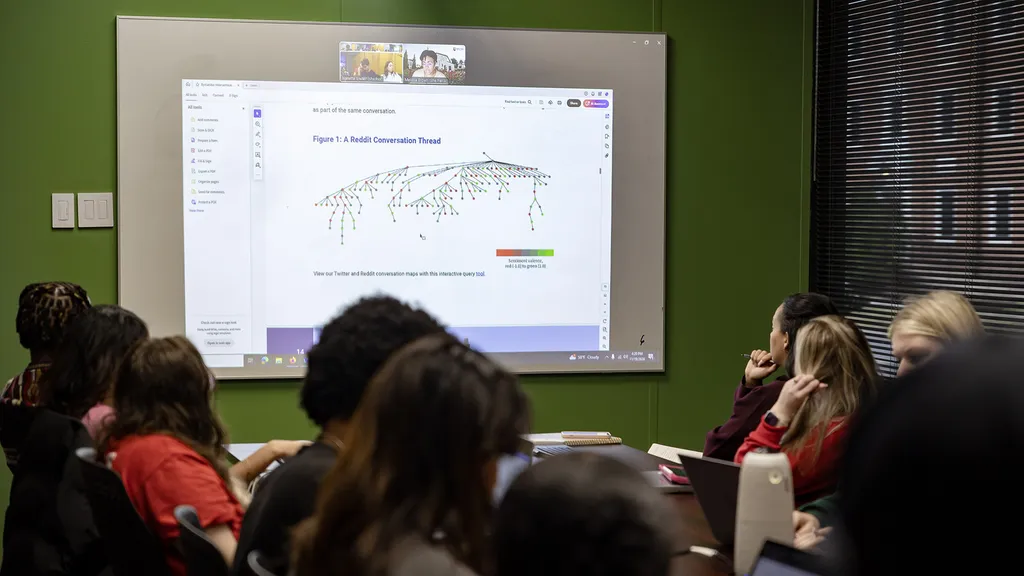- December 06, 2024
- By Sala Levin ’10
Jonathan Kitching ’25 arrived at the University of Maryland with the feeling he was reaching academic goals even higher than those his teachers in rural North Carolina had encouraged. But walking around campus in his earliest days as a Terp, he came across the Lt. Richard Collins III Plaza near Annapolis Hall, and, after googling who the plaza memorialized, felt a wave of sorrow.
“It’s one thing to intellectualize about hatred—it’s another thing to actually see” the place where violence happened “and be able to close your eyes and imagine that,” said Kitching.
The plaza memorializes the life of Collins, an Army-bound Bowie State University student who was killed at UMD by a white Maryland student in 2017. This was condemned by the university as an act of hate. Now, Collins’ life is the inspiration for a new class that examines hate crimes and their prevention.
[Hundreds Gather to Dedicate Lt. Richard Collins III Plaza]
“It’s a course that highlights the legacy of Lt. Collins to talk about history, and also to get us to a place where we can talk about hope and what a policy agenda would look like so that hate crimes and hate don’t exist,” said Rashawn Ray, professor of sociology and one of the instructors of “Hate Crimes in the U.S.: What Lt. Richard Collins III Can Teach Us About History, Hope and Healing.”

The course, which is offered to both UMD and Bowie State students, began with a visit from Dawn and Richard Collins to talk about their son’s life and their work through the 2nd Lt. Richard Collins III Foundation to advocate for hate-crime legislation. Students have learned about the history and current reality of hate against various groups in the United States, including Jews, LGBTQ+ people, Muslims and Asians.
“Students are bringing their own lived experiences and perspectives into the class, which can be very heavy,” said Jeanette Snider, assistant research professor in the Department of Sociology, who teaches the class with Ray. Some students, she noted, are learning for the first time about the pervasiveness of different forms of hatred in U.S. history.
Throughout the semester, guest speakers from universities and advocacy organizations addressed the spread of white supremacy online, Islamophobia after 9/11 and the wave of anti-Asian hate sparked by the COVID-19 pandemic.
“I didn’t really know much about other groups aside from hate crimes against Black people,” said Charlotte Singh ’26. “We didn’t really learn much about the aftereffects of 9/11 in school. In this class, I got to hear firsthand from a person who talked about his experience.”
Lauren Hinckley ’25 said that the class has influenced her professional aspirations to be a prosecutor. “I’ve learned that there really aren’t that many powerful hate crime laws, and that there definitely need to be more.”
Now that Kitching knows more about Richard Collins, he takes a moment to reflect whenever he passes the red brick memorial plaza, which was dedicated in 2022 and includes a replica of a mural created by a team of UMD and Bowie State students. “I can’t pass that place without standing there for at least a minute, because what else are you supposed to do?”
For Dawn and Richard Collins, the class represents an opportunity to remind students “that we’re all Americans, that everyone has the right to exist, that no one has the right to take someone’s life because they deemed them as ‘the other’ and not worthy,” she said. “With hate-fueled violence, we all lose.”
